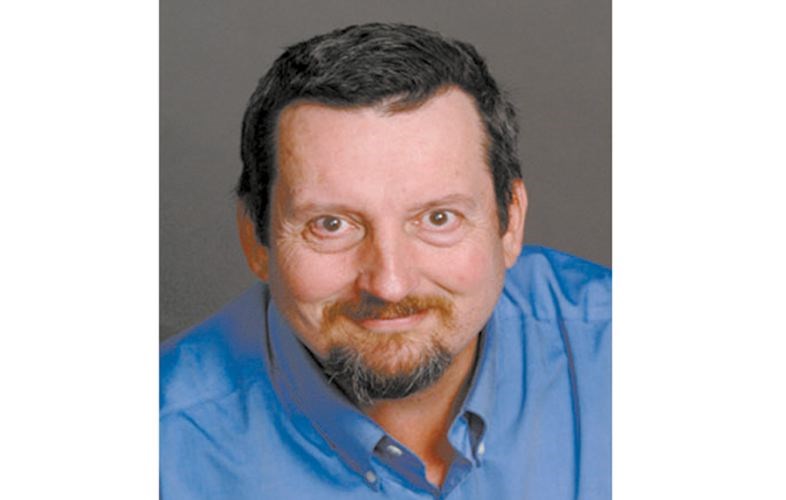A friend asked if I was going to stop picking on the Conservatives. I said, "Absolutely - if one of the other parties wins the election!"
Here we are, two weeks from the big decision day, and it is still not clear how this election is going to play out.
Who is going to win? Will it be a majority? Will the Conservatives sneak in despite Stephen Harper's shortcomings? Will Justin Trudeau pull an upset? Will Tom Mulcair be relegated to the kiddies table?
If you believe in Eric Grenier's Poll Tracker, it is pretty much a dead heat at this point. The Conservatives have a slight lead at 32.3 per cent but are down 0.2 per cent. The NDP are at 26.8 per cent, off 0.4 per cent. The Liberals are holding steady at 30.4 per cent.
The Bloc Quebecois at five per cent and Green Party at 4.8 per cent make up the difference although both are advancing in the polls, by 0.5 per cent and 0.2 per cent respectively.
Breaking this down into seats in the House is a little more difficult as our first past the post system means some elections will be landslides and others squeakers, but the person with the most votes wins in each case.
However, Poll Tracker and CBC have outlined a likely scenario in which the Conservatives retain 126 seats (with a range from 110 to 162 possible). The NDP are elected in 102 seats (with a range from 84 to 114 possible). And the Liberals have 107 MPs (with a range from 72 to 125 possible).
There is even an outside chance - as of today - that enough Conservative candidates might be elected to form a majority government.
If nothing else, the uncertainty is going to make watching the election results on Oct. 19 much more interesting than recent elections. More to the point, every single vote will matter! Even in ridings where victory is already apparent.
Such is the case locally. It seems Bob Zimmer is destined to a second term in Prince George - Peace River - Northern Rockies. Not perhaps surprising as the riding has been Conservative for a very long time. Still, winning with less than 50 per cent of the popular vote might just help send a message the riding shouldn't be taken for granted.
In Cariboo-Prince George, the race is much tighter with Todd Doherty leading at 40.7 per cent, Trent Derrick next at 36.2 per cent, and Tracy Caligheros trailing with 12.5 per cent, which is further proof that sometimes the best candidates don't win.
In any case, the final results in both ridings will depend heavily on voter turnout. If everyone who is eligible votes, the present poll results might not be close to the final tallies. This is doubly so for the candidates trailing in the races.
Regardless of the local results, we are likely to end up with another minority government on Oct. 20. This is not a bad thing. Minority governments have to achieve compromise to get anything done and compromise can often lead to better legislative outcomes.
But which party would be in power?
That is the much trickier question.
If the Conservatives do win their 126 seats, it would be their right to approach the Governor General and ask to form the government. But if they are defeated or can not govern, would the Liberals and NDP form a coalition to manage for the next four years?
With 209 combined seats, they would certainly have a majority and with over 60 per cent of the electorate between them, they would certainly have a mandate.
Or maybe the Conservatives would try to form a coalition with the Liberals.
But how could they after making fun of their leader for the past two years?
This is one of the fundamental problems with attack ads. How do you work together afterwards?
Personality politics aside, how do the parties work together when they have fairly different approaches?
In simple terms, the Conservatives are "staying the course." They are about safety - both personal and national - and the economy. (Why they would like us to believe they understand how to run the economy escapes me.)
The NDP are about "balanced change." They would move to grow the economy by reinvigorating manufacturing while offering social incentives such as day care and paying more attention to the environment. Not exactly aligned with the Conservatives or Liberals.
The Liberals are taking a page right out of the mid-20th century politics.
Their approach is about infrastructure, research, and education. Billions of dollars in infrastructure projects across the country intended to help cash-strapped cities and towns catch up on the massive deficit they presently face. Research to move us away from being solely a resource-based economy.
Education to ensure our children have a bright future and the potential to be leaders in the world economy. For the Liberals, this is "real change."
In two weeks, we find out which one Canada believes in.



